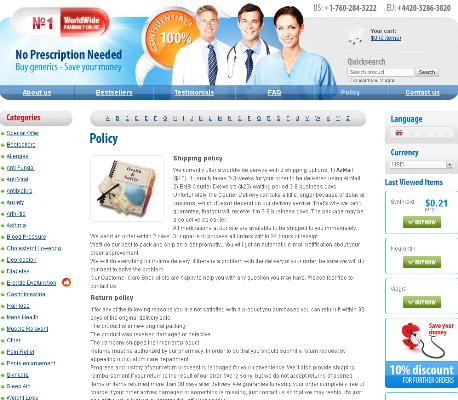Understanding Lexapro: What It Treats
Lexapro, a popular antidepressant, is commonly prescribed to tackle mental health conditions like major depressive disorder and generalized anxiety disorder. It works by balancing the levels of serotonin, a crucial neurotransmitter in teh brain, to improve mood and anxiety symptoms. While highly effective, Lexapro is not without its side effects, wich can impact daily life.
Understanding these side effects and knowing how to manage them is essential for those taking Lexapro. By addressing these issues, users can better focus on the benefits of their treatment and work towards a more stable mental health state.
| Condition Treated | Description | |---------------------------|-------------| | Major Depressive Disorder | Persistent sadness, loss of interest in activities | | Generalized Anxiety Disorder | Excessive worry, restlessness |
Common Side Effect #1: Nausea and How to Alleviate It

Feeling nauseous is a common side effect of taking Lexapro, particularly at the beginning of your treatment. This discomfort can be quite frustrating, but there are ways to manage it. One effective method is to take Lexapro with food; doing so can help to reduce the impact on your stomach. Additionally, staying hydrated is crucial, as sometimes teh body mistakes dehydration for other discomforts.
Another tactic to alleviate nausea is to eat smaller, more frequent meals throughout the day, instead of three large ones. Ginger, whether in tea or as a supplement, has also been known to soothe the stomach. By making these adjustments, you can better manage and potentially lessen this troublesome side effect.
Common Side Effect #2: Insomnia and Sleep Tips
Insomnia can be a frustrating side effect of taking Lexapro, leaving many patients tossing and turning at night. To improve your sleep quality, consider establishing a calming bedtime routine. Engage in relaxing activities such as reading or light stretching. Ensure your sleeping environment is comfortable; keep your room cool, dark, and quiet. If racing thoughts keep you awake, meditation or mindfulness exercises can be helpful. Remember, these tips won't work overnight, but with consistency, you can definately improve your sleep over time.
Common Side Effect #3: Fatigue and Boosting Your Energy

Fatigue is a commonly reported side effect for those taking Lexapro. It's important to monitor your energy levels and find practical ways to combat this. A balanced diet and regular exercise can significantly help maintain energy throughout the day. Additionally, staying hydrated is crucial for keeping your body functioning optimally, which can help stave off tiredness.
Another strategy to manage fatigue is to create a consistent sleep schedule. Going to bed and waking up at the same time daily helps regulate your internal clock. Make sure your sleep environment is comfortable and free from distractions. Sometimes, even minor adjustments in your bedtime routine can lead to better sleep quality, which in turn reduces fatigue.
If the fatigue persists, it might be worth discussing with your healthcare provider. They can offer personalized recommendations and might adjust your Lexapro dosage if necessary. Taking these steps can help you manage your energy levels and improve your overall quality of life while on Lexapro.
Common Side Effect #4: Dry Mouth and Simple Remedies
Dry mouth is a common side effect for those taking Lexapro, and dealing with it can be quite frustrating. However, simple remedies can make a big difference. Start by ensuring you stay hydrated throughout the day. Drinking water at regular intervals helps maintain moisture levels in your mouth. Chewing sugar-free gum or sucking on sugar-free candies can also stimulate saliva production, providing some relief.
Additionally, avoiding beverages like alcohol and caffeine can help, as these can worsen dry mouth. Utilizing over-the-counter oral moisturizers may be beneficial as well. If these measures don’t suffice and the condition persists, it is neccessary to consult your healthcare provider to rule out any serious underlying issues or to adjust your Lexapro dosage if needed.
| Remedy | Description |
|---|---|
| Hydration | Drink water regularly to maintain mouth moisture. |
| Sugar-Free Gum/Candies | Stimulate saliva production to alleviate dryness. |
| Avoid Alcohol & Caffeine | These beverages can exacerbate dry mouth symptoms. |
| Oral Moisturizers | Over-the-counter options can provide added relief. |
When to Consult Your Doctor about Side Effects
It's vital to know when minor discomfort turns into a concern worth discussing with your doctor. If side effects like nausea, insomnia, or fatigue worsen or fail to improve over time, Teh intervention of a healthcare professional is warranted. Persistent or severe symptoms might require an adjustment in dosage or even a switch to a different treatment.
Moreover, any new or unusual symptoms that arise after beginning Lexapro should be promptly brought to your doctor's attention. While most side effects are typically initial hurdles your body adapts to, there are instances where serious reactions can Occur. Always trust your instincts. If something feels off, it’s better to seek advice sooner rather than later for peace of mind and effective managment.



